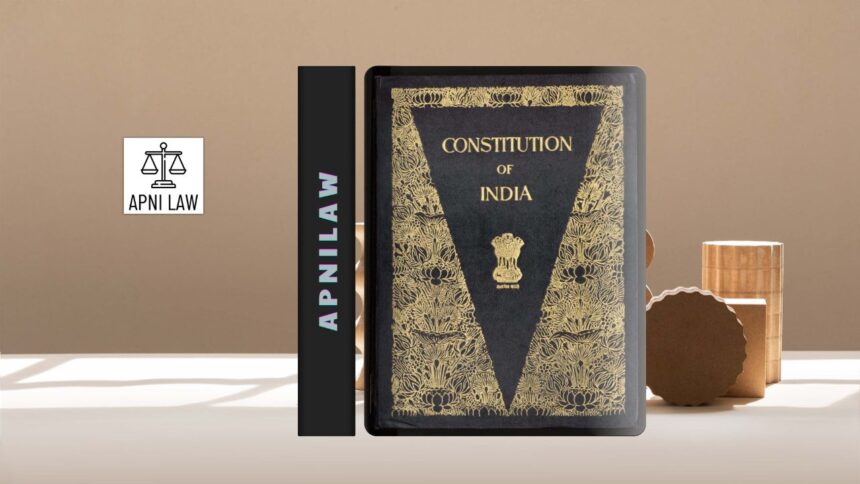Introduction
Fundamental Rights form the foundation of India’s democratic framework. These rights guarantee freedom, equality, and dignity to every individual, making them essential for a vibrant democracy. They act as a shield against arbitrary actions by the State and provide citizens with tools to challenge violations. When India adopted its Constitution on January 26, 1950, the inclusion of these rights ensured that liberty and justice would remain core values. Today, they remain the most significant provisions protecting personal freedoms and ensuring accountability of the government. Without these rights, democracy would be meaningless because citizens would lack the legal means to question authority.
Meaning and Explanation of Fundamental Rights
Fundamental Rights are the basic human rights guaranteed by the Indian Constitution. They are written in Part III of the Constitution, from Articles 12 to 35. These rights protect individuals against misuse of power by the State and provide a framework for justice and equality. Courts enforce these rights, which means any person can approach the judiciary when they are violated. These rights include equality before law, freedom of speech, protection of life, and the right against exploitation. They also cover cultural and educational rights for minorities and provide constitutional remedies to enforce these protections. The judiciary plays a key role in interpreting these rights to meet changing social and economic needs.
Features of Fundamental Rights
The features of these rights make them unique and powerful in safeguarding democracy. First, they are justiciable, meaning individuals can move to court when their rights are violated. This provision ensures that these rights are not only theoretical but practical and enforceable. Second, they apply universally to all citizens regardless of religion, caste, gender, or economic status. Third, they have limitations because the rights of one person should not harm another or threaten public order and national security. For instance, freedom of speech does not allow someone to incite violence. Another key feature is that these rights can be suspended during an emergency, but the right to life and personal liberty under Article 21 cannot be removed completely. This balance ensures individual liberty while protecting national interests.
Importance of Fundamental Rights
Fundamental Rights are the backbone of Indian democracy. They protect citizens from the arbitrary use of power by the State and create a sense of equality. Without these rights, people would not have legal grounds to fight discrimination or unfair treatment. They promote individual development because people can express themselves freely and pursue opportunities without fear. Moreover, these rights encourage social justice by eliminating untouchability and other discriminatory practices. They also strengthen national unity by treating all individuals equally under the law. In short, Fundamental Rights convert the ideals of liberty, equality, and justice into practical realities for every citizen.
Judicial Role
The judiciary ensures the effective implementation of these rights through constitutional interpretation. Courts have widened the scope of these rights to meet modern needs. One major example is Kesavananda Bharati v. State of Kerala (1973), where the Supreme Court held that the basic structure of the Constitution, which includes Fundamental Rights, cannot be amended. Another important case is Maneka Gandhi v. Union of India (1978), where the court expanded the meaning of the right to life under Article 21 to include the right to live with dignity. Similarly, in Indira Gandhi v. Raj Narain (1975), the court struck down a constitutional amendment that violated equality. These cases show that the judiciary plays a crucial role in protecting these rights and ensuring they evolve with time.
Practical Impact in Everyday Life
The presence of these rights affects every aspect of daily life. Citizens can freely express opinions, practice any religion, and choose an occupation. Students from minority communities can access educational institutions that preserve their culture. Workers benefit from laws preventing forced labor and child exploitation. If someone faces discrimination, they can approach the courts for justice. These examples prove that Fundamental Rights are not just constitutional provisions but practical guarantees of freedom and equality.
Challenges and Limitations
Although these rights are powerful, they face challenges. Many citizens are still unaware of their rights, which leads to violations going unchecked. Misuse of rights, such as spreading hate under the name of free speech, creates tension. Balancing individual liberty with national security remains a concern, especially during emergencies. Courts also face delays in delivering justice, which affects enforcement. Therefore, awareness and timely judicial action are essential for the effective use of these rights.
Frequently Asked Questions
What are Fundamental Rights in simple terms?
They are basic rights guaranteed by the Constitution that protect individuals against the misuse of power and ensure equality and freedom.
How many Fundamental Rights are there in India?
There are six Fundamental Rights in India: Right to Equality, Right to Freedom, Right against Exploitation, Right to Freedom of Religion, Cultural and Educational Rights, and Right to Constitutional Remedies.
Why are Fundamental Rights important?
They safeguard democracy, protect individual liberty, and ensure social justice.
Can Fundamental Rights be suspended?
Yes, except the right to life and personal liberty under Article 21, which cannot be completely removed.
Which Article gives the power to enforce Fundamental Rights?
Article 32 gives the Supreme Court the power to enforce these rights.
Conclusion
Fundamental Rights transform the ideals of the Constitution into reality by protecting liberty, equality, and justice. They empower citizens to challenge violations and ensure that the government remains accountable. These rights make democracy meaningful by giving people the power to question authority and live with dignity. However, citizens must remain aware of their rights and exercise them responsibly. The judiciary must also continue to uphold these rights against any misuse of power. For expert legal help on Fundamental Rights, consult ApniLaw for guidance and solutions.
For any specific query call at +91 – 8569843472








